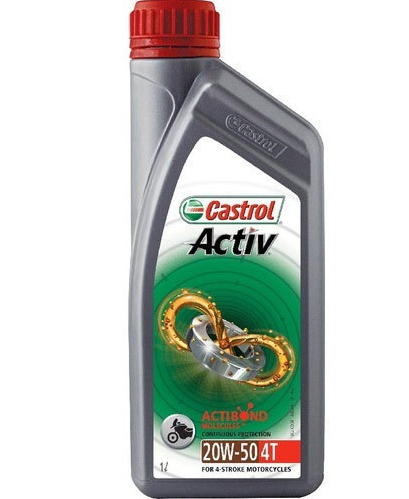Oil additives are generally safe for your engine when used appropriately. They can enhance performance and protect engine components.
Oil additives have become a hot topic for vehicle enthusiasts and everyday drivers seeking optimal engine performance and longevity. These chemical compounds are designed to improve the base oil’s properties, targeting specific issues such as engine wear, temperature stability, and sludge accumulation.
Utilizing the right oil additive can lead to smoother engine operation, reduced friction, and better fuel economy. It’s crucial to select additives compatible with your engine oil and vehicle type, as the wrong choice might lead to complications rather than benefits. Always consult your vehicle’s manufacturer guidelines or a professional mechanic before adding any foreign substances to your engine oil. By doing so, you ensure that your engine remains healthy, and your car performs at its best.

Credit: www.jdpower.com
The Role of Oil in Engine Health
Engine oil is more than just a slippery fluid. It is the lifeline for engines. The right oil keeps engines running smoothly. Even more, it ensures that every ride is a safe one. Think of engine oil as the superhero of engine health. Now, let us dive into the ways oil is vital for your engine.
Lubrication And Cooling
Oil works as a barrier between engine parts. This reduces friction. Less friction means less heat. Engines need to stay cool to work well. High temperatures can harm engines. Imagine oil as a cooling agent that protects against overheating.
- Minimizes wear and tear: It creates a thin film between moving parts.
- Helps dissipate heat: Transfers heat away from combustion cycle.
- Ensures smooth operation: Parts move without harsh grinding.
Cleaning And Protection
Engines get dirty. Oil acts like a cleaner. It picks up debris and dirt. This keeps the engine clean from the inside. Clean engines perform better. Without clean oil, sludge builds up. Sludge can kill engines. Think of it as a guardian against grime.
- Prevents buildup: It dissolves contaminants and prevents deposits.
- Protects components: A shield against rust and wear on engine parts.
- Maintains efficiency: Clean engines use fuel better.
Common Types of Oil Additives
When maintaining your vehicle, choosing the right oil additives can be crucial for engine performance and longevity. Oil additives enhance lubricant functionality and protect vital engine parts. Knowing the common types of oil additives is key to making an informed decision for your engine’s health.
Anti-wear Agents
Engines work hard and their parts grind against each other. This friction can cause wear and tear over time. Anti-wear agents form a protective layer on engine components. This layer reduces direct metal-to-metal contact, minimizing damage. Popular anti-wear agents include zinc dialkyldithiophosphate (ZDDP), crucial for safeguarding your engine’s well-being.
Dispersants And Detergents
Keeping an engine clean is as important as keeping it lubricated. Dispersants and detergents play a critical role here. They prevent sludge accumulation by keeping particles in suspension. This allows the oil filter to easily remove them. These additives ensure your engine runs smoothly and stays clean for longer.
Viscosity Modifiers
The thickness of oil changes with temperature. Viscosity modifiers help combat this issue. They ensure oil flows easily when it’s cold and thickens when it’s hot. This helps maintain an ideal oil consistency across different temperatures. A stable viscosity is essential for optimal engine protection under various operating conditions.
Perceived Benefits Of Oil Additives
Drivers seek ways to keep their engines in peak condition. Oil additives promise benefits that catch the eye of any vehicle owner. The allure of these products comes from their claims to enhance engine functionality. To understand the appeal, let’s explore these key benefits.
Extended Engine Life
Oil additives aim to keep your engine running longer. They are designed to provide extra protection against the internal stress and strains of day-to-day driving. This can mean a car that stays on the road for extra years. Think of additives as a shield, guarding against early engine retirement.
Improved Performance
Fuel efficiency and smoother operation often top the list of perks from oil additives. By minimizing friction and keeping engine components clean, these additives strive to deliver a more responsive ride. Better acceleration and a quieter engine can be expected as these additives work their magic.
Reduced Engine Wear
- Friction reduction: key to an engine’s longevity.
- Temperature control: Additives help manage heat, preventing damage.
- Cleaner internals: They combat sludge and deposit formation.
By targeting the consistent enemies of engine components, oil additives play a critical role. They work silently to prevent the usual tear and wear that engines endure. A smoother, cooler running engine translates to less maintenance costs over time.

Credit: www.amazon.com
Potential Risks And Drawbacks
Delving into the realm of vehicle maintenance often brings up the topic of oil additives. Although designed to enhance engine performance, these additives come with potential concerns that car owners should consider.
Compatibility Issues
Not all engines are created equal, and similarly, oil additives aren’t universally compatible with every engine type. The unique formulation of additives may clash with certain engine designs or existing oil types, potentially leading to:
- Reduced efficacy of the engine oil
- Incompatibility with synthetic or conventional oils
- Potential for chemical reactions that harm engine components
Impact On Oil Balance
Engine oils are meticulously balanced mixtures. Introducing additives can disrupt this harmony. This imbalance might cause:
- Altered viscosity, affecting engine lubrication.
- Changes to oil pressure.
- Unintended chemical reactions within the oil.
These changes could compromise the integrity of the engine and reduce its lifespan.
Warranty Concerns
Adding aftermarket products like oil additives to your engine can potentially void its warranty. Understanding your vehicle’s warranty terms is crucial before using additives. Here are key aspects to be aware of:
- Warranty specifications regarding acceptable products
- The risk of warranty voidance if unauthorized additives are used
- Possible denial of warranty claims due to additive-related damage
It’s essential to consult your vehicle’s documentation or speak with a manufacturer representative before making any alterations to your engine’s oil.
Understanding Manufacturer Recommendations
When it’s about your car, following the maker’s advice is key. Oil additives can promise benefits. But, do they suit your engine? The answer lies within manufacturer guidelines. They blend science and expertise, ensuring your car runs smoothly. Let’s dive deep into what automakers and certifying bodies say about using oil additives.
Oil Standards And Certifications
Oil quality matters for engine longevity. Certifications like API and SAE gauge this quality. These standards ensure oils meet strict performance criteria.
Now, with additives, you must check for compliance. Oils boasting API (American Petroleum Institute) or SAE (Society of Automotive Engineers) marks mean safety and reliability. Additives without such backing might be a risk. Here’s a more detailed look:
- API: Monitors oil grade ensuring it’s perfect for engines.
- SAE: Focuses on oil’s viscosity, crucial for engine wear protection.
- Additives should align with these to keep warranty intact.
Automaker’s Stance On Additives
Each automaker has a viewpoint on additives. Some support them, while others do not. It’s about their engine’s design and needs.
For example, many automakers prescribe specific oil types suitable for their engines without the need for additives. They often caution that additives might disrupt the oil’s balance causing more harm than benefit.
Check your manual. It’s your go-to for the right guidance. You’ll find recommendations for oil types, change intervals, and notes on additives. This table summarizes typical automaker stances:
| Automaker | Additives Supported? | Notes |
|---|---|---|
| Ford | No | Use certified oils only. |
| Toyota | No | Advises against additives. |
| BMW | Yes, selectively | Only with approval from BMW. |
Remember, your car’s health hinges on these recommendations. Always consult your car’s manual or authorized dealer before deciding on additives.

Credit: www.bellperformance.com
Real-world Experiences With Additives
When it comes to car maintenance, oil additives spark a mix of opinions. Some drivers swear by them, others approach with caution. Let’s explore the real-life impact these additives have on engines through user testimonials and expert analyses.
User Testimonials
Drivers from various forums share their stories, fueling a debate on the benefits of additives:
- “My old truck runs smoother after I started using additives.” – John S., Pickup Forum
- “I didn’t notice any change in my car’s performance.” – Maria K., Auto Enthusiast Blog
- “Engine noise reduced significantly.” – Alex P., Mechanic Community Board
These experiences, while varied, suggest that outcomes can depend on the vehicle’s condition, the type of additive used, and individual expectations.
Expert Opinions
Automotive experts often weigh in on the effectiveness of oil additives. Let’s examine their insights:
| Expert | Opinion |
|---|---|
| Dr. Gearhead, PhD in Automotive Engineering | “Additives can benefit high-mileage engines by reducing wear.” |
| Emma T., Certified Mechanic | “Not all additives meet the hype. Choose carefully.” |
| Car Review Weekly, Auto Publication | “In our tests, some additives improved oil stability under stress.” |
In summary, experts suggest that additives can offer benefits, but not all products are equal. Research and select products proven to show results.
When To Consider Using Oil Additives
Uncertain about using oil additives? Consider your car’s age and driving conditions. These factors may signal the need for that extra boost.
High-Mileage EnginesHigh-mileage Engines
Engines with lots of miles often face wear and tear. Oil additives can help. They reduce friction and restore engine seals. This can lead to smoother performance. Think about additives if your odometer reads high.
Harsh Driving ConditionsHarsh Driving Conditions
Drive in tough conditions? Extreme hot or cold and stop-and-go traffic stress engines. Additives protect against harsh elements. They keep oil stable at high temperatures. They also clean sludge in city drives. (Learn More About Extreme Pressure Additive)
Choosing The Right Additive for Your Engine
When it comes to maintaining your engine, selecting the right oil additive can make a significant difference. Engine additives are designed to enhance the performance of your vehicle’s oil. They can reduce friction, clean engines, and extend their life. But it’s crucial to choose additives that are safe and beneficial for your engine.
Analyzing Product Claims
Not all additives live up to their promises. To ensure you’re making an informed decision, scrutinize the claims of each product. Look for proven benefits like:
- Wear reduction: Reduces engine part wear.
- Improved efficiency: Boosts fuel economy.
- Cleanliness: Keeps engines clean from sludge.
Verify claims with scientific data and user reviews. Trustworthy products often have tests and ratings backing them up. Always check for the American Petroleum Institute (API) certification as well.
Seeking Professional Advice
Talking to a mechanic or engine expert is wise before adding any product to your vehicle. They can provide:
- Personalized recommendations based on your engine’s needs.
- Insight on compatibility with your specific engine type.
- Experience-based advice on which additives enhance performance.
Professionals can also help you avoid products that may harm your engine. Remember, safety is paramount.
Frequently Asked Questions Of Are Oil Additives Safe For Your Engine?
Should I Put Additives In My Engine Oil?
Consult your vehicle’s manual before adding oil additives. Manufacturers often design engine oils to meet specific engine requirements, making additives unnecessary and potentially harmful to your engine’s performance and longevity. Choose quality oil and change it regularly for best results.
Are High Mileage Oil Additives Worth It?
High mileage oil additives can prolong engine life and improve performance for older cars by reducing oil consumption and leaks. They’re generally considered worth it for vehicles over 75,000 miles.
Are Oil Fuel Additives Worth It?
Oil fuel additives can be beneficial, improving engine performance and fuel efficiency. They clean and lubricate your engine, potentially extending its life. Yet, their necessity largely depends on the specific vehicle and fuel quality used.
Do Older Engines Need Oil Additives?
Older engines may benefit from oil additives to enhance lubrication, reduce wear, and prolong engine life. It’s advisable to consult with a mechanic for specific recommendations.
Conclusion
To wrap things up, oil additives can be a boon for engine longevity if chosen wisely. Ensure product compatibility and stick to manufacturer recommendations for best results. Remember, while additives offer benefits, they’re not a cure-all. Regular maintenance remains key to a healthy engine.
Make informed choices to keep your car running smoothly.


